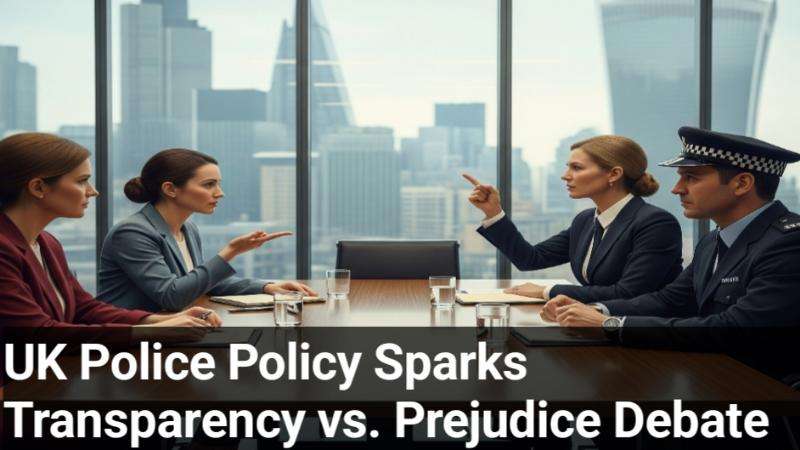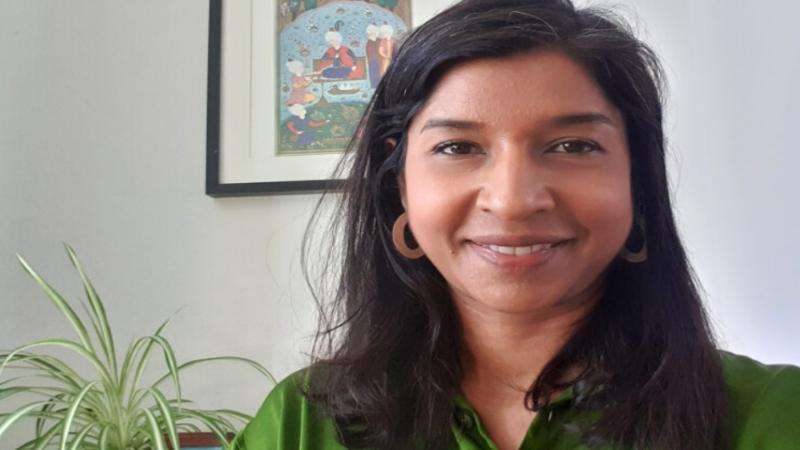
The Law Ministry recently decided to replace the much controversial
Digital Security Act 2018 with the newly proposed
Cyber Security Act. The Digital Security Act has been heavily criticised for its oppressive provisions that hindered freedom of expression and investigative journalism at large. Although the government always emphasised on its aim to protect citizens and entities from various cyber crimes but frequent abuse and unjust application concerned all stakeholders, mainly journalists, since it was enacted. It is the pick and choose attitude regarding its applicability that made it more controversial. While an ex-deputy minister gets away with his derogatory remarks on Zayma Rahman and threats made to an actress, a writer dies in prison after not being granted bail for more than a year. A young student, Khadiza, is still in jail following a case filed under the DSA. Incidents of Cartoonist Kishore, journalist Kajol and many more have created fear among lay people of what to speak and what not to.
Before DSA came into force, the existence of certain provisions like S 57 of the ICT Act passed in 2006 raised concerns too. DSA was a modernised version of the old ICT Act which addressed the essence of forensic labs and protection of citizens and entities from wide range of cyber crimes that accommodates commercial fraud and malicious harassment of women and children. As it was seen against Officer in Charge, Moazzem, as he unlawfully interrogated Nusrat and shared the video on social media before she was brutally murdered. However, in practice, the Act became an oppressive sword to silence critics rather than being a shield for the victims of real cyber crimes. The main reason behind the abuse of its application lies in its vaguely drafted definition of certain offences and excessive powers provided to police under S43 of the Act.
Section 43 provides unfettered power to police to search, seize or arrest without warrant even if there are reasonable grounds to believe that a crime under this Act is "likely to be committed". Firstly, it fails to distinguish between the gravity of offences as it applies to all provisions. Secondly, it always creates scope for politically empowered people to misuse their influence to hinder flow of true information by using Section 25, 29, and 31. Section 25 of the Act is vaguely defined and leaves scope of abuse as it clearly fails to include an exception that publishing/broadcasting/sharing with intention to spread true information or report a criminal activity will not amount to an offence even if it "annoys" or "offends" someone.
Both Section 25 and Section 31 involves the risk of abuse as the provision fails to exclude ethical journalism with the exception of matters related to national security, sensitive military information, and confidential diplomatic information. Serious concerns arise in relation to the application of Section 31 which includes detoriation of law and order but fails to consider investigative report or a video/picture/recording/statement of a criminal/actionable act on social media that may influence people unpredictably. In addition, accessing relevant documents is a part of established practice of ethical investigative journalism to expose corruption and other crimes. S33 and some other provisions fail to exclude its applicability if used for journalistic purposes. Similarly, satirical posts, cartoons, graffiti etc are established forms of expression recognised internationally. The inclusion of provisions from the backdated and oppressive Official Secrets Act will eventually impede access to general information needed for research and investigative journalism.
People have witnessed many incidents of abuse of the DSA and non-bailable nature of some offences that endangers the lives of mass populace or leads to riot or irrecoverable damage to one's reputation may be justified considering its seriousness. However, definition of offences must not have ambiguity. Along with increasing technological development the essence of ensuring cyber security through effective laws is inevitable. Although it becomes challenging when crimes are committed outside our territory. Although this Act enjoys extra-territorial jurisdiction but we have not seen many incidents where random Youtubers and so-called activists involved in spreading misinformation regarding sensitive issues of national security or humiliating someone to face exemplary conviction. Similarly, increasing use of AI is posing cyber threats globally. It must also be noted that despite all the stringent provisions private information of public was stolen from a government website. And, multiple government websites are still being threatened by cyber criminals.
At the same time, freedom of expression is not an unfettered liberty that allows one to malicious humiliate or insult another with an ill motive. Often, many women, children, and respected members of the society are victims of malicious cyber attacks. In countries like Bangladesh where religious sentiments are very strong it is important to have laws that protect fundamental right to enjoy religious freedom, and, to protect sanctity of religions to prevent riots. Thus, Section 28 plays a pivotal role to protect religious harmony. However, the definition of offences should include religious speakers who spread misinformation, hatred, radical ideologies, and encourage extremism.
The proposed Cyber Security Bill brought some amendments. Defamation under Section 29 is no longer imprisonable and only punishable by a fine not exceeding 25 lacs, and reduced punishment of some with only 6 offences being non-bailable. However, preservation of most of the controversially or vaguely drafted provisions, its non-bailable feature, and power of police under Section 43 is making critics and stakeholders say it's the same liquor in a new bottle. It is also important for the policy makers to realise that occupational constraints will force lay people to rely on unauthorised sources on social media often filled with imaginary nonsense and sick display of biased narratives. Cumulative dialogue with prominent activists, journalists, and lawyers can open the door to an uniquely drafted Cyber Security Act that can achieve both protection of the country and its citizens from cyber criminals, and, ensure enough space for real freedom of expression and investigative journalism.
Writer:
Barrister Ahnaf Fahmin
Barrister-at-Law, Lincoln's Inn.
 The Law Ministry recently decided to replace the much controversial Digital Security Act 2018 with the newly proposed Cyber Security Act. The Digital Security Act has been heavily criticised for its oppressive provisions that hindered freedom of expression and investigative journalism at large. Although the government always emphasised on its aim to protect citizens and entities from various cyber crimes but frequent abuse and unjust application concerned all stakeholders, mainly journalists, since it was enacted. It is the pick and choose attitude regarding its applicability that made it more controversial. While an ex-deputy minister gets away with his derogatory remarks on Zayma Rahman and threats made to an actress, a writer dies in prison after not being granted bail for more than a year. A young student, Khadiza, is still in jail following a case filed under the DSA. Incidents of Cartoonist Kishore, journalist Kajol and many more have created fear among lay people of what to speak and what not to.
Before DSA came into force, the existence of certain provisions like S 57 of the ICT Act passed in 2006 raised concerns too. DSA was a modernised version of the old ICT Act which addressed the essence of forensic labs and protection of citizens and entities from wide range of cyber crimes that accommodates commercial fraud and malicious harassment of women and children. As it was seen against Officer in Charge, Moazzem, as he unlawfully interrogated Nusrat and shared the video on social media before she was brutally murdered. However, in practice, the Act became an oppressive sword to silence critics rather than being a shield for the victims of real cyber crimes. The main reason behind the abuse of its application lies in its vaguely drafted definition of certain offences and excessive powers provided to police under S43 of the Act.
Section 43 provides unfettered power to police to search, seize or arrest without warrant even if there are reasonable grounds to believe that a crime under this Act is "likely to be committed". Firstly, it fails to distinguish between the gravity of offences as it applies to all provisions. Secondly, it always creates scope for politically empowered people to misuse their influence to hinder flow of true information by using Section 25, 29, and 31. Section 25 of the Act is vaguely defined and leaves scope of abuse as it clearly fails to include an exception that publishing/broadcasting/sharing with intention to spread true information or report a criminal activity will not amount to an offence even if it "annoys" or "offends" someone.
Both Section 25 and Section 31 involves the risk of abuse as the provision fails to exclude ethical journalism with the exception of matters related to national security, sensitive military information, and confidential diplomatic information. Serious concerns arise in relation to the application of Section 31 which includes detoriation of law and order but fails to consider investigative report or a video/picture/recording/statement of a criminal/actionable act on social media that may influence people unpredictably. In addition, accessing relevant documents is a part of established practice of ethical investigative journalism to expose corruption and other crimes. S33 and some other provisions fail to exclude its applicability if used for journalistic purposes. Similarly, satirical posts, cartoons, graffiti etc are established forms of expression recognised internationally. The inclusion of provisions from the backdated and oppressive Official Secrets Act will eventually impede access to general information needed for research and investigative journalism.
People have witnessed many incidents of abuse of the DSA and non-bailable nature of some offences that endangers the lives of mass populace or leads to riot or irrecoverable damage to one's reputation may be justified considering its seriousness. However, definition of offences must not have ambiguity. Along with increasing technological development the essence of ensuring cyber security through effective laws is inevitable. Although it becomes challenging when crimes are committed outside our territory. Although this Act enjoys extra-territorial jurisdiction but we have not seen many incidents where random Youtubers and so-called activists involved in spreading misinformation regarding sensitive issues of national security or humiliating someone to face exemplary conviction. Similarly, increasing use of AI is posing cyber threats globally. It must also be noted that despite all the stringent provisions private information of public was stolen from a government website. And, multiple government websites are still being threatened by cyber criminals.
At the same time, freedom of expression is not an unfettered liberty that allows one to malicious humiliate or insult another with an ill motive. Often, many women, children, and respected members of the society are victims of malicious cyber attacks. In countries like Bangladesh where religious sentiments are very strong it is important to have laws that protect fundamental right to enjoy religious freedom, and, to protect sanctity of religions to prevent riots. Thus, Section 28 plays a pivotal role to protect religious harmony. However, the definition of offences should include religious speakers who spread misinformation, hatred, radical ideologies, and encourage extremism.
The proposed Cyber Security Bill brought some amendments. Defamation under Section 29 is no longer imprisonable and only punishable by a fine not exceeding 25 lacs, and reduced punishment of some with only 6 offences being non-bailable. However, preservation of most of the controversially or vaguely drafted provisions, its non-bailable feature, and power of police under Section 43 is making critics and stakeholders say it's the same liquor in a new bottle. It is also important for the policy makers to realise that occupational constraints will force lay people to rely on unauthorised sources on social media often filled with imaginary nonsense and sick display of biased narratives. Cumulative dialogue with prominent activists, journalists, and lawyers can open the door to an uniquely drafted Cyber Security Act that can achieve both protection of the country and its citizens from cyber criminals, and, ensure enough space for real freedom of expression and investigative journalism.
Writer:
Barrister Ahnaf Fahmin
Barrister-at-Law, Lincoln's Inn.
The Law Ministry recently decided to replace the much controversial Digital Security Act 2018 with the newly proposed Cyber Security Act. The Digital Security Act has been heavily criticised for its oppressive provisions that hindered freedom of expression and investigative journalism at large. Although the government always emphasised on its aim to protect citizens and entities from various cyber crimes but frequent abuse and unjust application concerned all stakeholders, mainly journalists, since it was enacted. It is the pick and choose attitude regarding its applicability that made it more controversial. While an ex-deputy minister gets away with his derogatory remarks on Zayma Rahman and threats made to an actress, a writer dies in prison after not being granted bail for more than a year. A young student, Khadiza, is still in jail following a case filed under the DSA. Incidents of Cartoonist Kishore, journalist Kajol and many more have created fear among lay people of what to speak and what not to.
Before DSA came into force, the existence of certain provisions like S 57 of the ICT Act passed in 2006 raised concerns too. DSA was a modernised version of the old ICT Act which addressed the essence of forensic labs and protection of citizens and entities from wide range of cyber crimes that accommodates commercial fraud and malicious harassment of women and children. As it was seen against Officer in Charge, Moazzem, as he unlawfully interrogated Nusrat and shared the video on social media before she was brutally murdered. However, in practice, the Act became an oppressive sword to silence critics rather than being a shield for the victims of real cyber crimes. The main reason behind the abuse of its application lies in its vaguely drafted definition of certain offences and excessive powers provided to police under S43 of the Act.
Section 43 provides unfettered power to police to search, seize or arrest without warrant even if there are reasonable grounds to believe that a crime under this Act is "likely to be committed". Firstly, it fails to distinguish between the gravity of offences as it applies to all provisions. Secondly, it always creates scope for politically empowered people to misuse their influence to hinder flow of true information by using Section 25, 29, and 31. Section 25 of the Act is vaguely defined and leaves scope of abuse as it clearly fails to include an exception that publishing/broadcasting/sharing with intention to spread true information or report a criminal activity will not amount to an offence even if it "annoys" or "offends" someone.
Both Section 25 and Section 31 involves the risk of abuse as the provision fails to exclude ethical journalism with the exception of matters related to national security, sensitive military information, and confidential diplomatic information. Serious concerns arise in relation to the application of Section 31 which includes detoriation of law and order but fails to consider investigative report or a video/picture/recording/statement of a criminal/actionable act on social media that may influence people unpredictably. In addition, accessing relevant documents is a part of established practice of ethical investigative journalism to expose corruption and other crimes. S33 and some other provisions fail to exclude its applicability if used for journalistic purposes. Similarly, satirical posts, cartoons, graffiti etc are established forms of expression recognised internationally. The inclusion of provisions from the backdated and oppressive Official Secrets Act will eventually impede access to general information needed for research and investigative journalism.
People have witnessed many incidents of abuse of the DSA and non-bailable nature of some offences that endangers the lives of mass populace or leads to riot or irrecoverable damage to one's reputation may be justified considering its seriousness. However, definition of offences must not have ambiguity. Along with increasing technological development the essence of ensuring cyber security through effective laws is inevitable. Although it becomes challenging when crimes are committed outside our territory. Although this Act enjoys extra-territorial jurisdiction but we have not seen many incidents where random Youtubers and so-called activists involved in spreading misinformation regarding sensitive issues of national security or humiliating someone to face exemplary conviction. Similarly, increasing use of AI is posing cyber threats globally. It must also be noted that despite all the stringent provisions private information of public was stolen from a government website. And, multiple government websites are still being threatened by cyber criminals.
At the same time, freedom of expression is not an unfettered liberty that allows one to malicious humiliate or insult another with an ill motive. Often, many women, children, and respected members of the society are victims of malicious cyber attacks. In countries like Bangladesh where religious sentiments are very strong it is important to have laws that protect fundamental right to enjoy religious freedom, and, to protect sanctity of religions to prevent riots. Thus, Section 28 plays a pivotal role to protect religious harmony. However, the definition of offences should include religious speakers who spread misinformation, hatred, radical ideologies, and encourage extremism.
The proposed Cyber Security Bill brought some amendments. Defamation under Section 29 is no longer imprisonable and only punishable by a fine not exceeding 25 lacs, and reduced punishment of some with only 6 offences being non-bailable. However, preservation of most of the controversially or vaguely drafted provisions, its non-bailable feature, and power of police under Section 43 is making critics and stakeholders say it's the same liquor in a new bottle. It is also important for the policy makers to realise that occupational constraints will force lay people to rely on unauthorised sources on social media often filled with imaginary nonsense and sick display of biased narratives. Cumulative dialogue with prominent activists, journalists, and lawyers can open the door to an uniquely drafted Cyber Security Act that can achieve both protection of the country and its citizens from cyber criminals, and, ensure enough space for real freedom of expression and investigative journalism.
Writer:
Barrister Ahnaf Fahmin
Barrister-at-Law, Lincoln's Inn.







.svg)

_1.jpg)